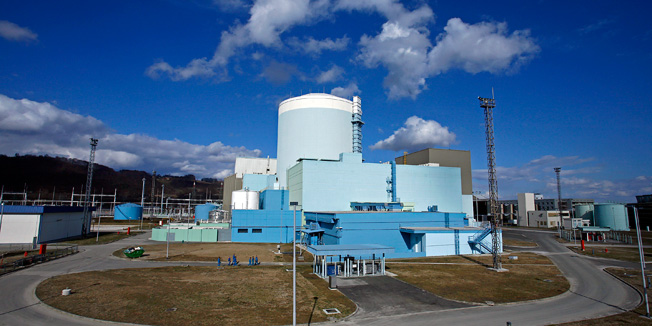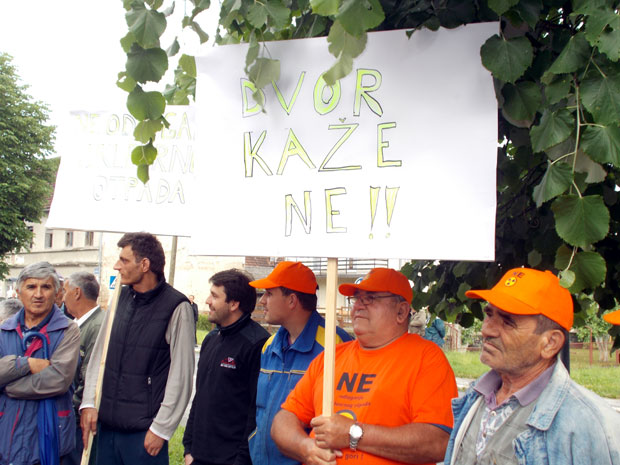
Nuclear waste from the Krško Power Plant might soon end up on the border between Croatia and Bosnia and Herzegovina where the construction of a repository was announced, causing fear among citizens of both countries.
Nuclear waste from the Krško Power Plant might soon end up on the border between Croatia and Bosnia and Herzegovina where the construction of a repository was announced, causing fear among citizens of both countries.
The Krško Nuclear Power Plant, owned by Croatia and Slovenia, was constructed during the time of the former Yugoslavia. It was announced that the nuclear waste from the Slovenian town of Krško will be transferred to Trgovska Gora in the Croatian town Dvor on the Una River, near the Bosnian border.
The acquisition of permits for the relocation of waste is expected next year, and the construction of the repository will take two years.
News about the construction of a repository for nuclear waste was met with disapproval from the residents of Dvor, as well as from their neighbors from Bosanski Novi, the closest Bosnian town. The residents are concerned about their safety and the potential impact the waste could have on the environment and on their health. The citizens of Dvor are also afraid for their youth and feel it is better to move them out of the town if the waste will be disposed of in their municipality.
“We need it like we need a hole in the head, as they say. This area should remain as it is – natural and clean,” says one local resident.

No less anxious are the citizens of Bosnia and Herzegovina (BiH) that are living in the area. According to Miloš Šolaja, professor of International Security at the Faculty of Social Sciences in Banja Luka, citizens have a reason to be afraid.
“We have a problem with technology and maintenance. How can small countries maintain such expensive security measures? Another issue is that, for these small countries, especially the ones that are energy-poor, this is a very good source of energy. Nuclear energy is relatively cheap and clean, but in the event of a disaster, it could become a hazard, which could later be very difficult to control,” explains Šolaja.
He stresses that coordination between countries is the best way to resolve such situations and that the safest way to solve this problem is to destroy waste using global systems that were set up for it. Serbia, for example, sends their nuclear waste to Russia.
Čedomir Crnogorac, professor of Geoecology at the Faculty of Sciences in Banja Luka, claims that storing nuclear waste is strictly regulated under the global and European frameworks, with clearly defined safety standards. Thus, the storage of nuclear waste in the European Union (EU) is a strictly controlled procedure.
“There is always a potential risk, but I don’t think someone will “play” with the trust or threat of severe punishment of the international community. The Una and Sava rivers are border rivers and polluting them would severely undermine the credibility of the Croatian Republic within the global context. It would primarily jeopardize tourism, but also a host of other activities. Just imagine how much it would diminish the chances of marketing Croatian agricultural products in the EU and elsewhere, both inside and outside of Europe,” Crnogorac explains.
Currently, the real threat is difficult to assess as opinions are still divided. Crnogorac adds that this type of issue is never local or limited to one country, but must be viewed globally.
“From the outset and without any visible scientific or expert elaboration, the reactions have been exceedingly pessimistic. About 90% of the information comes from daily political promotion that is contributing to the rising tensions, and almost no one is listening to what the experts have to say,” adds Crnogorac.






